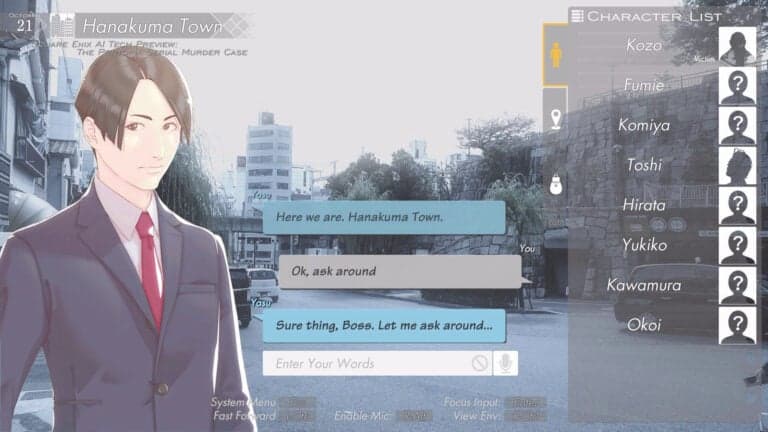AI Video Game From Square Enix Gets Utterly Destroyed By Reviews
Square Enix used AI to reboot The Portopia Serial Murder video game from 1983, and gamers were not happy.

Square Enix apparently wants to be at the forefront of technology when it comes to video games and profit generation, as it just launched an AI video game that got utterly destroyed by reviews. It would seem that the company has no problems embarrassing itself in front of its audiences, first by producing an absolute flop such as Marvel’s Avengers, then by announcing a game that features 10,000 microtransactions, and now this—an AI video game nobody wanted in the first place.
But just because nobody wanted the game doesn’t mean that gamers won’t try it out. For better or for worse, gamers are a really tough crowd, and despite toxicity that sometimes runs rampant through the gaming community, gamers are also the ultimate critics when it comes to video games. Well, according to Kotaku, the jury (gamers) has spoken, and the Square Enix AI video game, which is actually a re-release of a 1983 The Portopia Serial Murder Case adventure game, totally sucks—for all the reasons disclosed below.
The 1983’s Portopia Serial Murder Case is anything but a bad game. It’s a text-based adventure game released on NEC PC-6001 and later ported to Nintendo Famicom. It was actually a very well-received game for its great storyline, surprising twist ending, and variety of choices that led to the game’s ending—all of which were praised by the legendary Hideo Kojima. However, what’s notable about this particular re-release of the game is the fact that Square Enix is using it to test out AI technology for use in video games. According to gamer reviews, the results are an absolute disaster.

The first thought people might have about this is that Square Enix has used the AI to generate in-game art like it was the case with High on Life, or in-game text and a variety of choices—as per our previous discussion, AI is being used to create the greatest Choose Your Own Adventure video games. However, that’s not the case here; Square Enix actually tried implementing AI tech into the Portopia video game to make the gameplay easier when, in fact, they made things worse, which led to the review bombarding of an AI video game.
Old text-based adventures were a mess to program and play. For example, your answer to a particular puzzle has to be exactly the same as the developer has intended. Otherwise, you’re stuck. That’s because the games used to recognize the exact sequences of letters and words as an answer. Old text-based games couldn’t understand context, which is something Square Enix hoped an AI implementation could help with by relying on Natural Language Processing to try and link the player’s input to the correct or desired answer. They wanted to teach the video game context.
Unfortunately, Square Enix’s AI implementation into The Portopia Serial Murder Case video game failed epically—mostly due to bad implementation alone. Not only does it not understand context, but it’s also bad at discerning any commands at all, and some of the inputs are now even more frustrating than the 1983 original. One reviewer even commented that Square Enix’s attempt at another modern tech fad is an insult to a game with a vast and important legacy. And we tend to agree.












